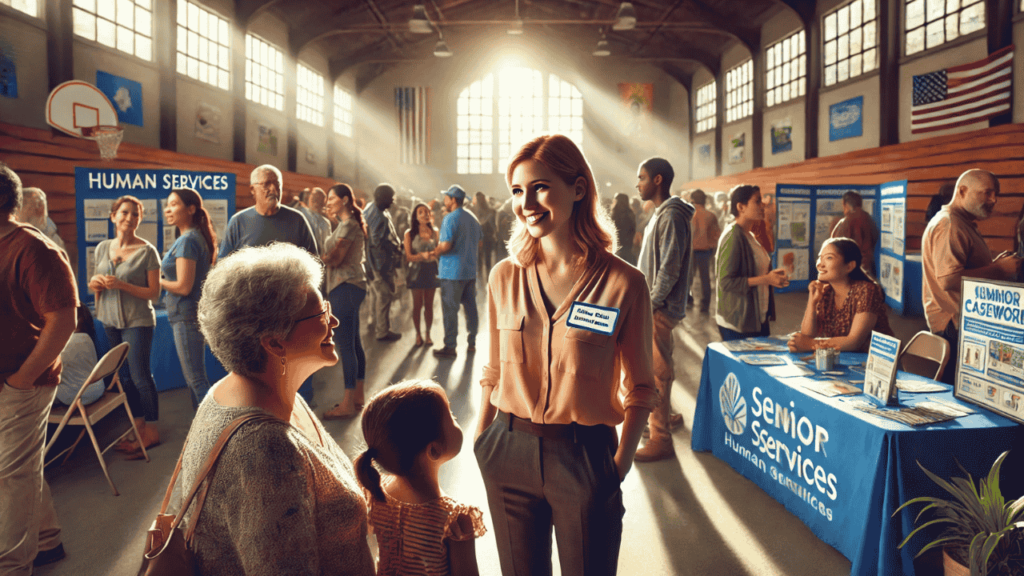In today’s rapidly changing society, the challenges faced by individuals and families are becoming increasingly complex. Economic uncertainties, mental health issues, and social disparities require comprehensive support systems. At the forefront of providing this support are senior human services caseworkers. These professionals, exemplified by dedicated individuals like nicole aldensenior human services caseworker, play a pivotal role in bridging the gap between those in need and the resources available to assist them.
Understanding the Role
A senior human services caseworker is more than just a liaison between clients and services; they are advocates, mentors, and often, pillars of strength for those navigating difficult life circumstances. Professionals like nicole aldensenior human services caseworker bring years of experience and a deep understanding of social systems to their roles, enabling them to provide tailored assistance to each client.
Key Responsibilities
- Assessment and Evaluation
- Holistic Understanding: Senior caseworkers conduct thorough assessments to understand the physical, emotional, and social needs of clients.
- Individualized Plans: They develop personalized service plans that address specific challenges and leverage clients’ strengths.
- Resource Coordination
- Network Utilization: Leveraging an extensive network of community resources, they connect clients with essential services such as healthcare, housing, education, and employment opportunities.
- Continuous Support: They ensure clients can access these resources effectively, providing ongoing assistance as needed.
- Advocacy and Empowerment
- Client Representation: Acting as advocates, they represent clients in legal, medical, and social service settings.
- Empowerment Strategies: They empower clients by educating them about their rights and helping them develop self-advocacy skills.
- Mentorship and Leadership
- Guiding New Professionals: Senior caseworkers like nicole aldensenior human services caseworker mentor junior staff, sharing insights and fostering professional growth.
- Policy Development: They contribute to organizational policies and advocate for systemic changes to improve service delivery.
Skills Required for Success
Success in the role of a senior human services caseworker requires a multifaceted skill set:
- Empathy and Compassion: Understanding clients’ experiences and providing non-judgmental support.
- Effective Communication: Clear articulation of information to clients, colleagues, and stakeholders.
- Problem-Solving Abilities: Innovative approaches to overcoming obstacles and finding sustainable solutions.
- Cultural Competence: Sensitivity to and respect for cultural, racial, and socioeconomic diversity.
- Resilience and Self-Care: Maintaining personal well-being to prevent burnout and continue providing high-quality support.
Professionals like nicole aldensenior human services caseworker exemplify these skills, consistently demonstrating excellence in their field.
Challenges Faced
The role is not without its challenges:
- High Caseloads: Managing the needs of numerous clients can be overwhelming.
- Emotional Strain: Exposure to clients’ traumatic experiences can lead to compassion fatigue.
- Systemic Barriers: Navigating bureaucratic hurdles and insufficient funding can impede service provision.
- Resource Limitations: Scarcity of resources can limit the assistance available to clients.
Despite these obstacles, senior caseworkers remain committed to their mission, finding creative ways to support their clients effectively.
The Impact on Communities
The contributions of senior human services caseworkers extend beyond individual clients to the broader community:
- Strengthening Social Fabric: By supporting individuals and families, they help build more resilient and cohesive communities.
- Reducing Societal Costs: Effective case management can reduce the burden on healthcare, legal, and social service systems.
- Promoting Equity: Advocating for marginalized populations helps address social injustices and promotes inclusivity.
The dedication of professionals like nicole aldensenior human services caseworker leads to tangible improvements in community well-being.
Burnout Prevention and Self-Care Strategies

Given the demanding nature of their work, it’s crucial for caseworkers to employ strategies to maintain their well-being:
- Professional Support Networks: Engaging with colleagues for support and shared learning.
- Continued Education: Pursuing ongoing training to stay current and feel competent in their roles.
- Work-Life Balance: Setting boundaries to ensure time for personal activities and rest.
- Mindfulness Practices: Incorporating stress-reduction techniques such as meditation or exercise.
By prioritizing self-care, caseworkers can sustain their ability to help others effectively.
Ethical Considerations in Human Services
Ethics play a central role in human services:
- Confidentiality: Safeguarding client information is paramount.
- Professional Boundaries: Maintaining appropriate relationships to avoid conflicts of interest.
- Informed Consent: Ensuring clients are fully aware of their rights and the nature of services provided.
- Cultural Sensitivity: Respecting and honoring the diverse backgrounds of clients.
Senior caseworkers like nicole aldensenior human services caseworker navigate these ethical considerations with professionalism and integrity.
The Future of Human Services Casework
The field is evolving, with trends influencing how services are delivered:
- Technological Integration: Utilizing digital tools for case management and client communication.
- Trauma-Informed Care: Incorporating approaches that recognize the impact of trauma on clients.
- Policy Advocacy: Engaging in legislative processes to shape policies that affect service delivery.
- Collaborative Models: Working in interdisciplinary teams to provide comprehensive support.
Embracing these trends allows professionals to enhance their effectiveness and better meet clients’ needs.
Conclusion
Senior human services caseworkers are essential agents of change. Their expertise and compassion enable them to support vulnerable populations, advocate for social justice, and strengthen communities. The unwavering commitment of individuals like nicole aldensenior human services caseworker underscores the profound difference that dedicated professionals can make in the lives of many.
FAQs
- What does a senior human services caseworker do?
- They assess clients’ needs, develop personalized care plans, connect them with resources, and advocate on their behalf to improve their overall well-being.
- What skills are essential for this role?
- Essential skills include empathy, effective communication, problem-solving abilities, cultural competence, and resilience to handle the job’s emotional demands.
- What challenges do caseworkers like nicole aldensenior human services caseworker face?
- Challenges include managing high caseloads, emotional strain from exposure to clients’ traumas, systemic barriers within social services, and resource limitations.
- How do senior caseworkers impact the community?
- By supporting individuals and families, they strengthen community bonds, reduce societal costs, and promote social equity and inclusivity.
- Why is mentorship important in human services?
- Mentorship ensures the transfer of knowledge and skills to new professionals, maintaining high standards of service and fostering professional development within the field.
